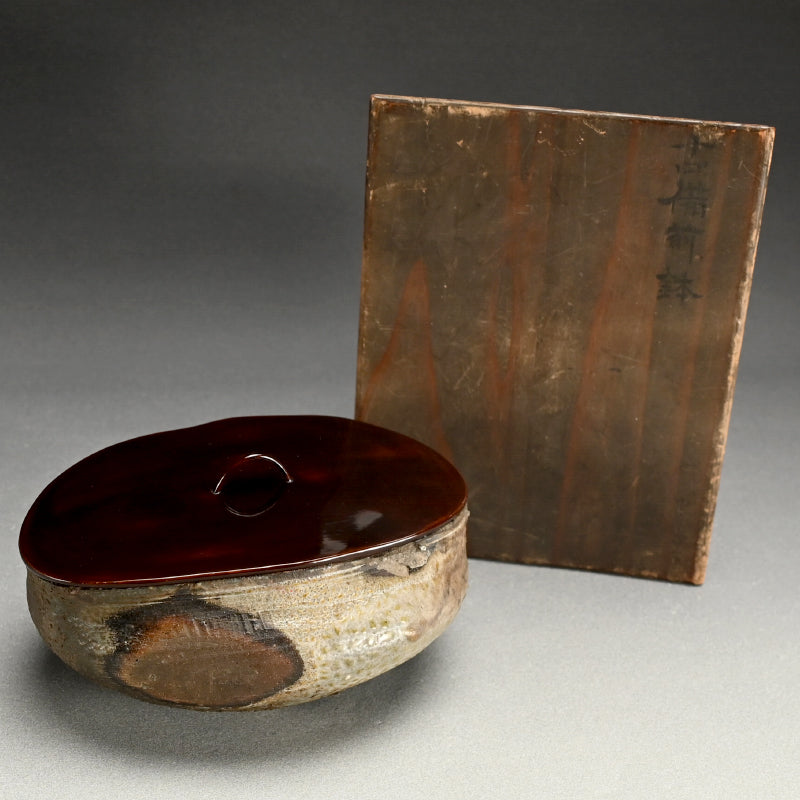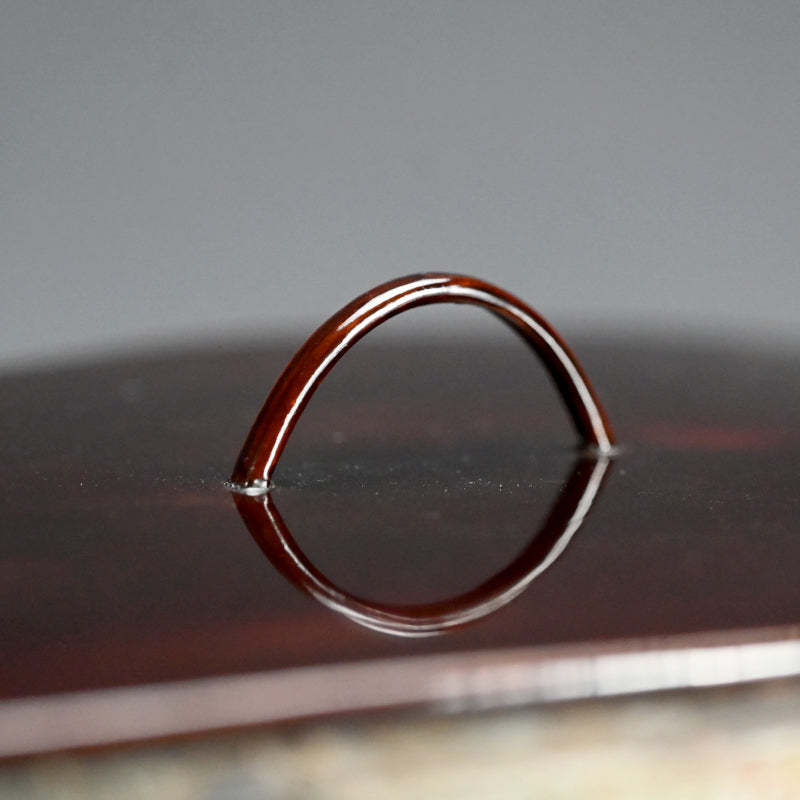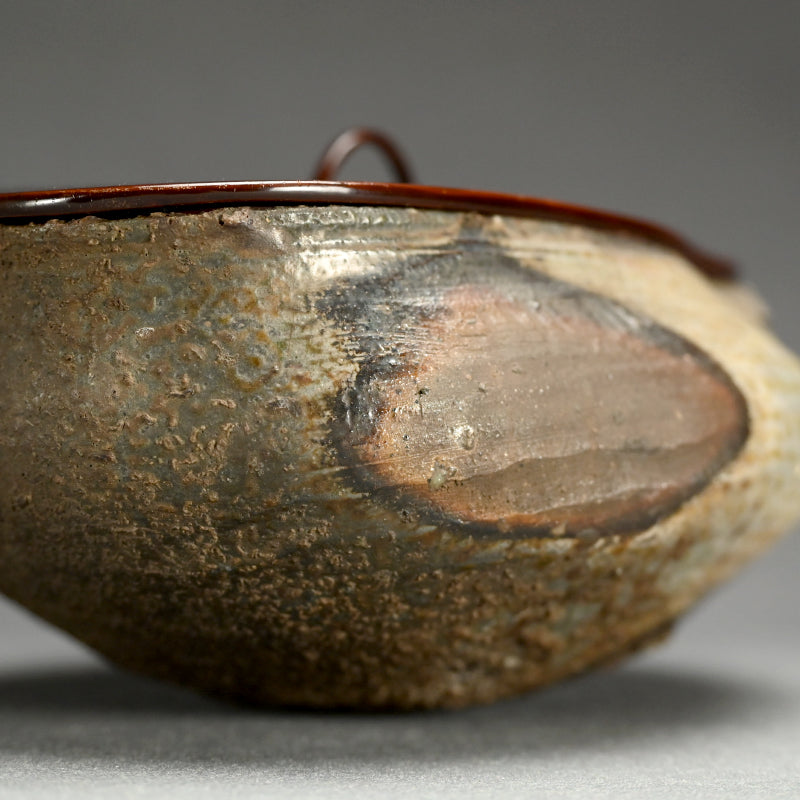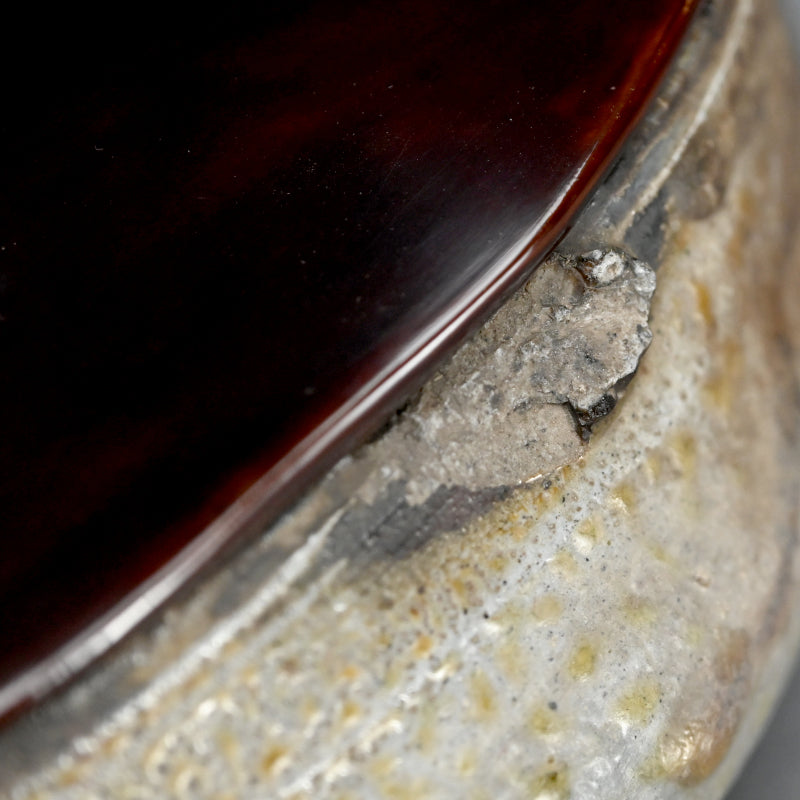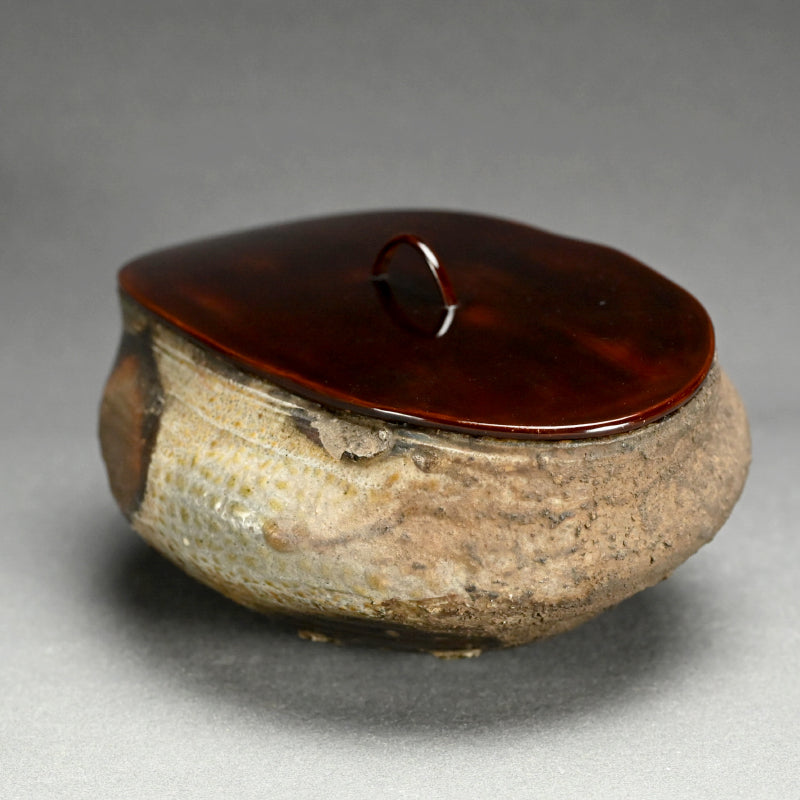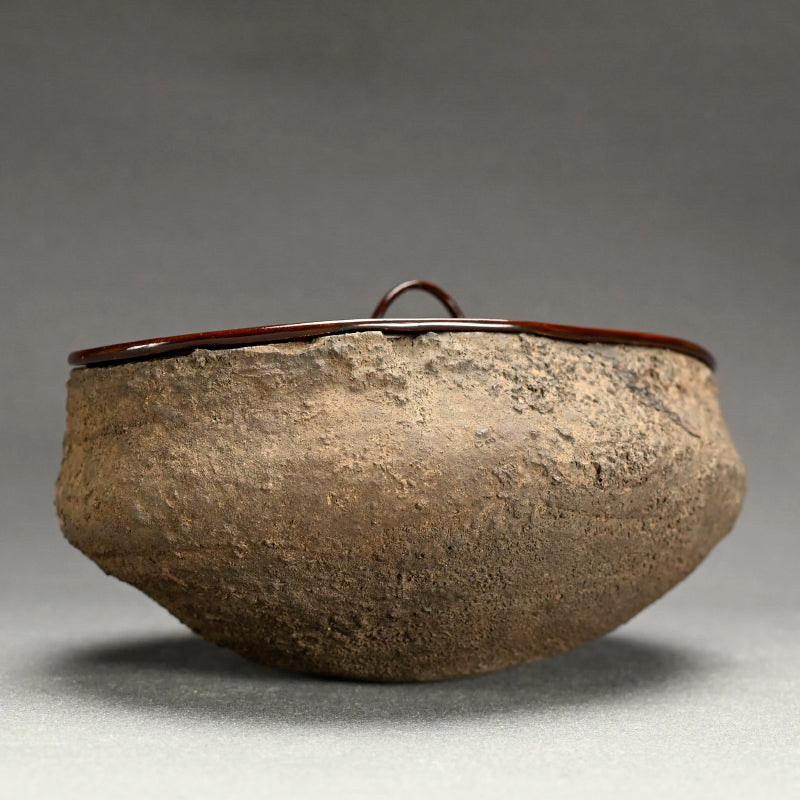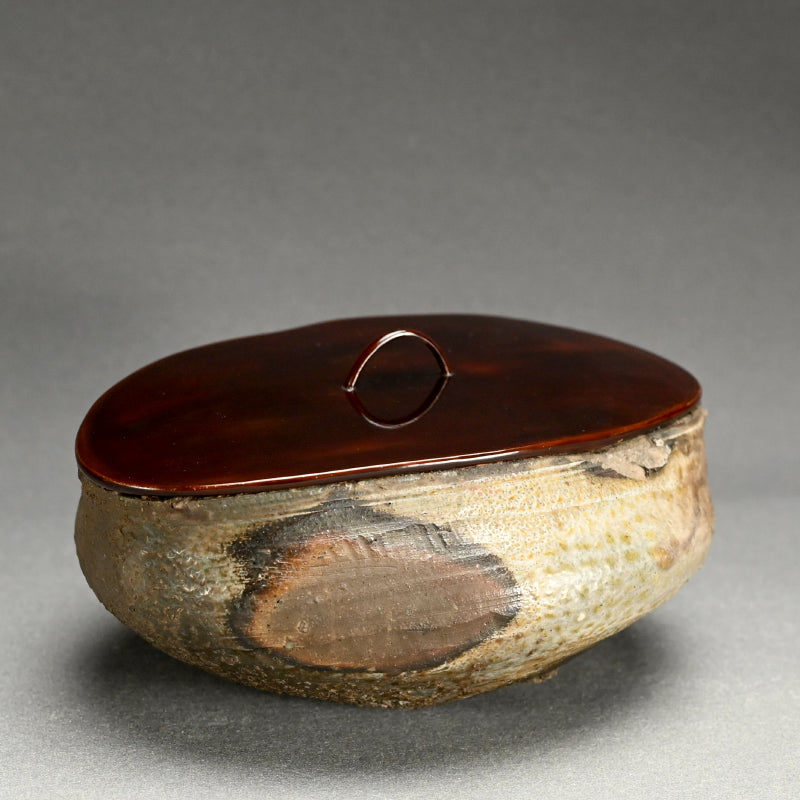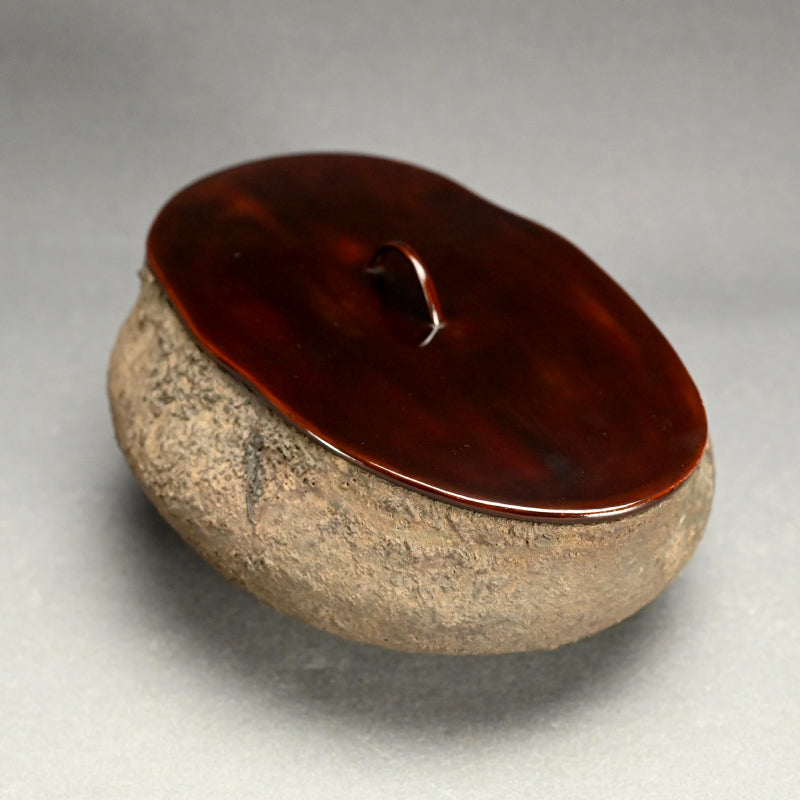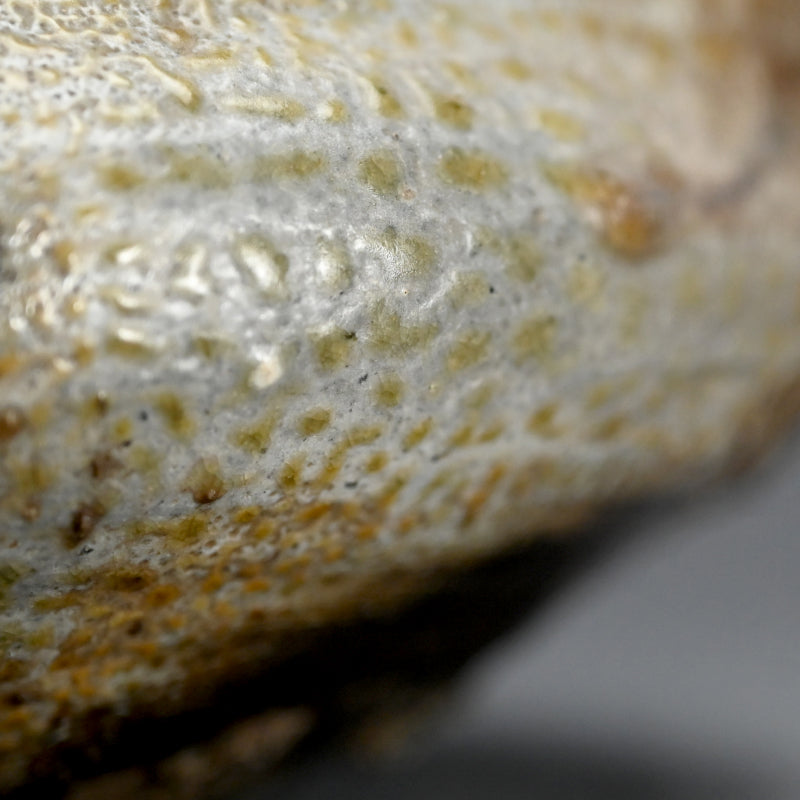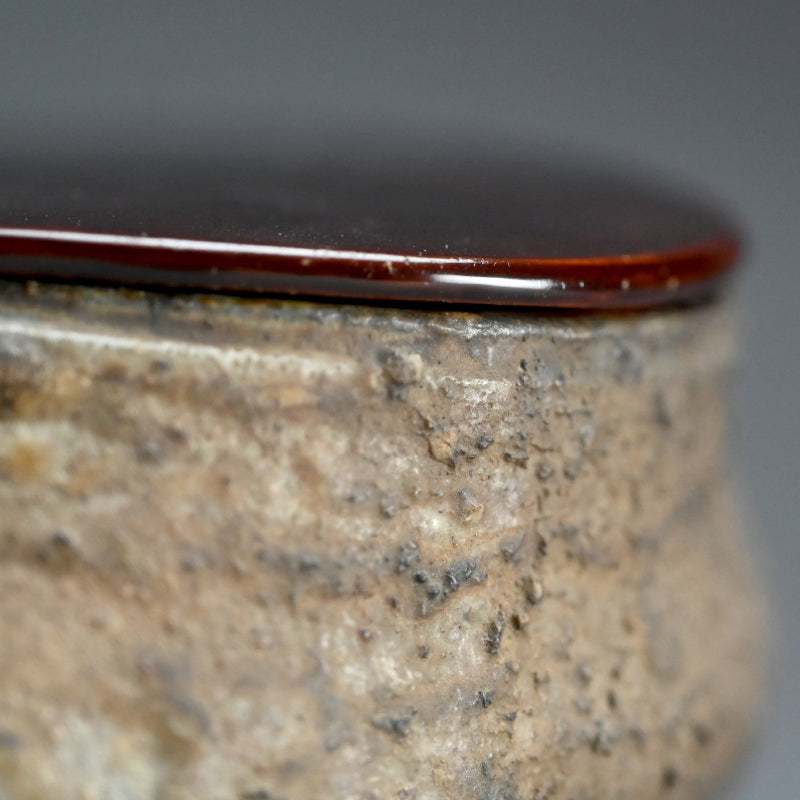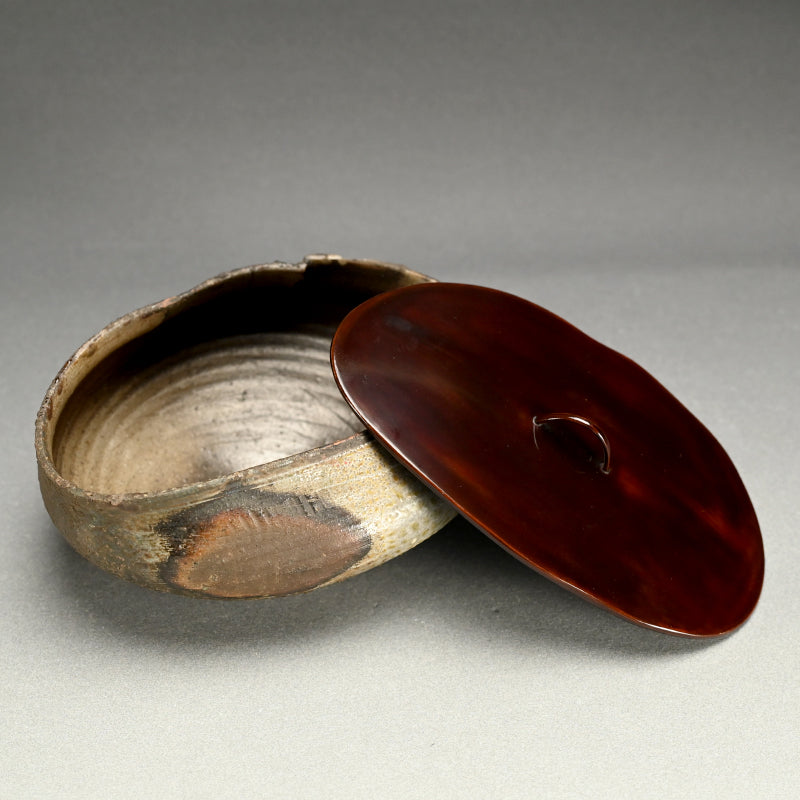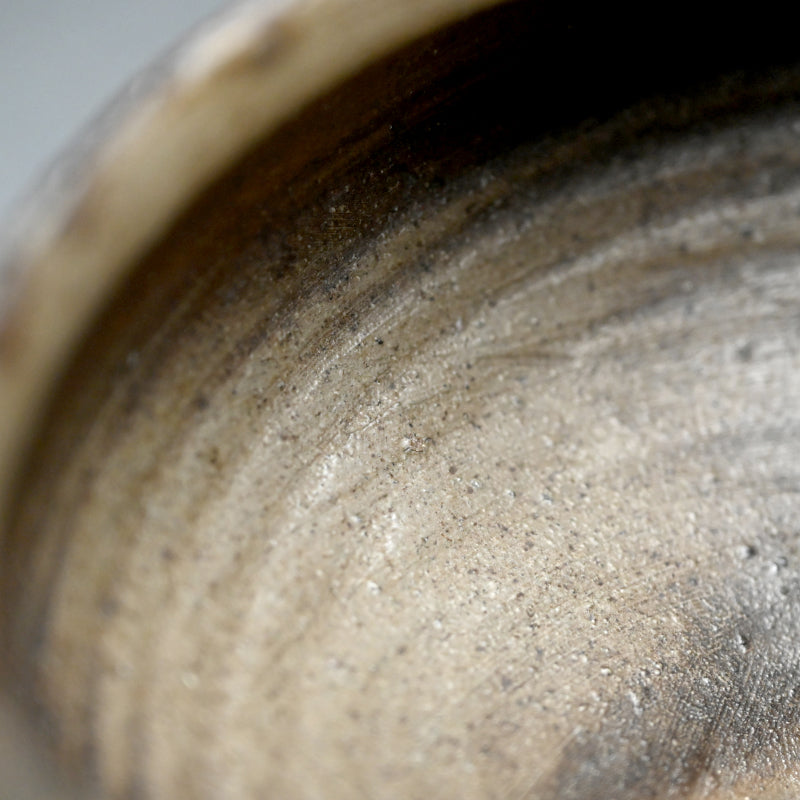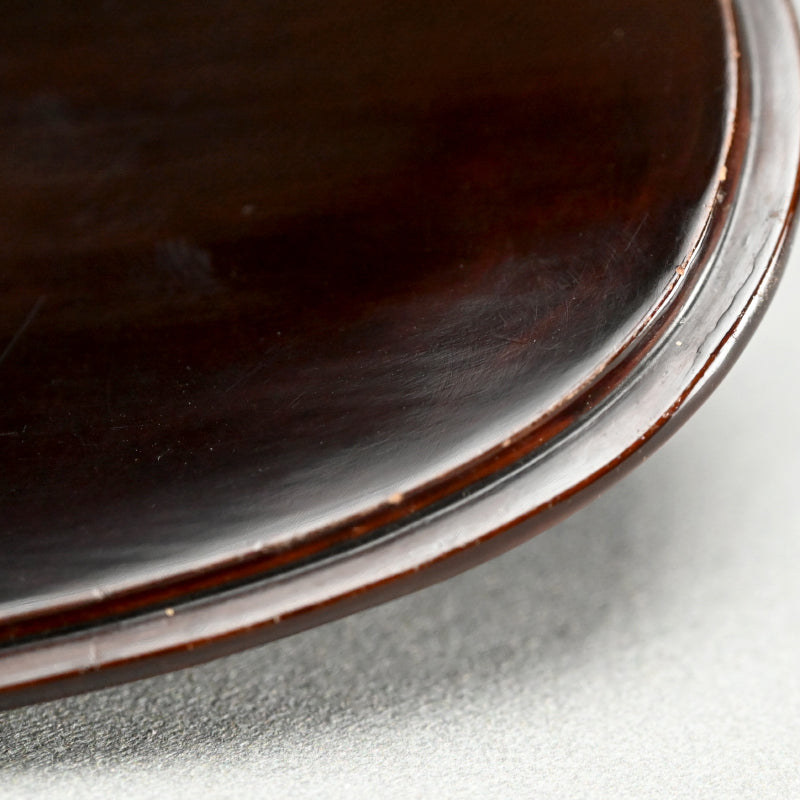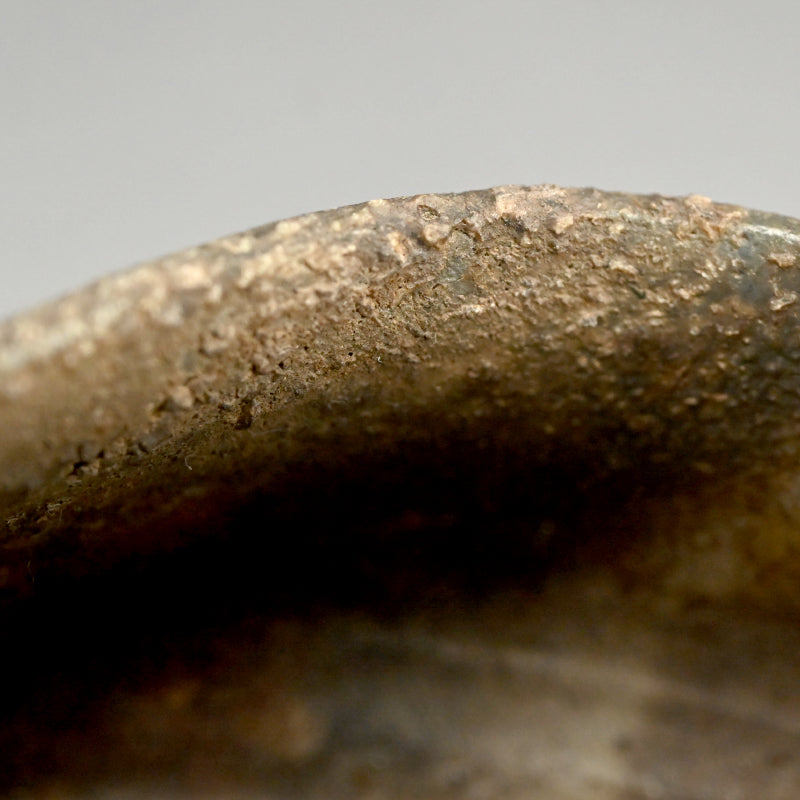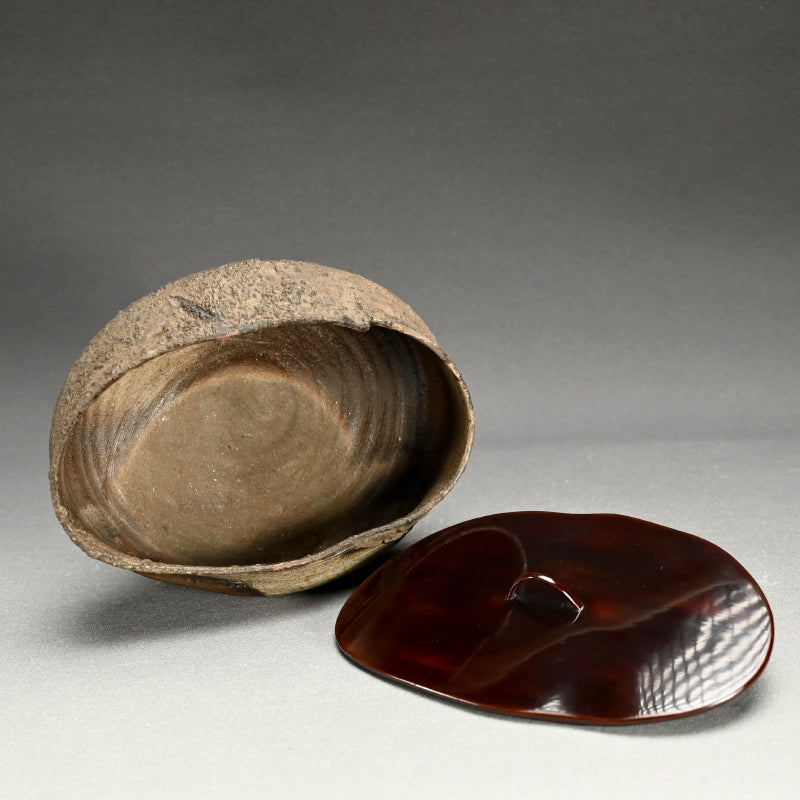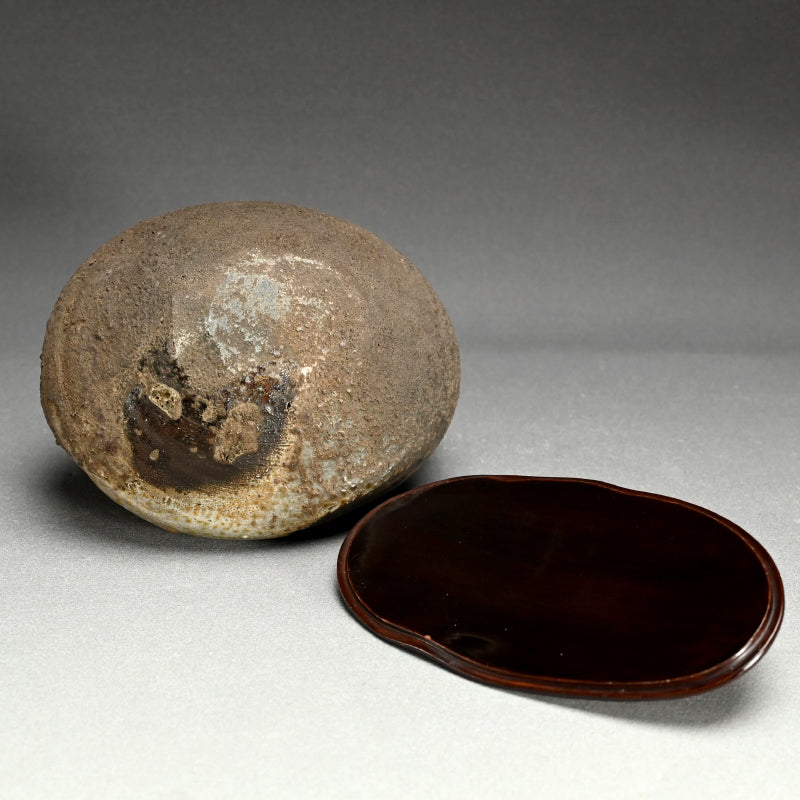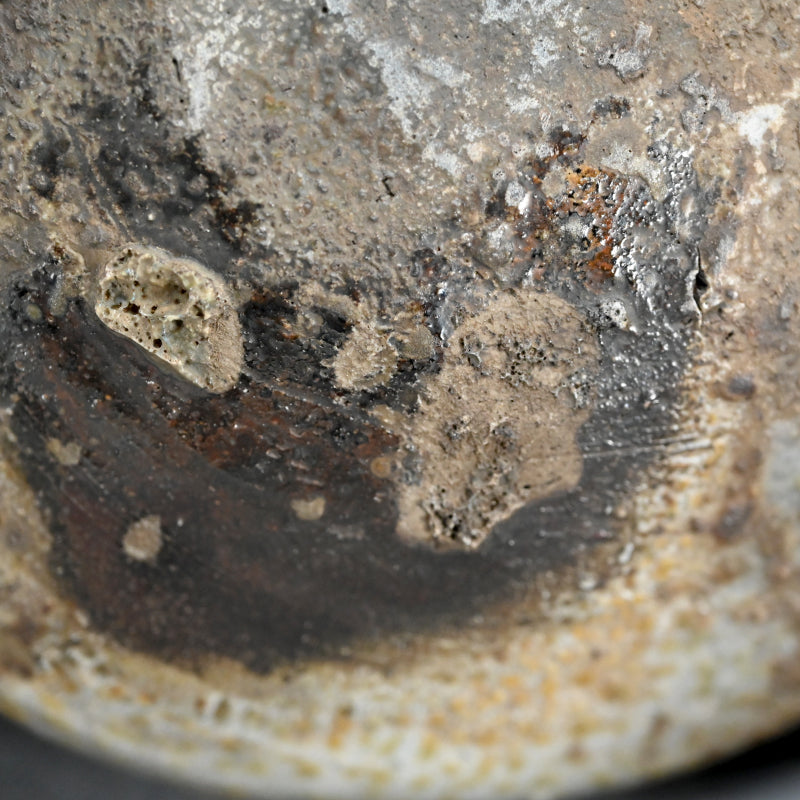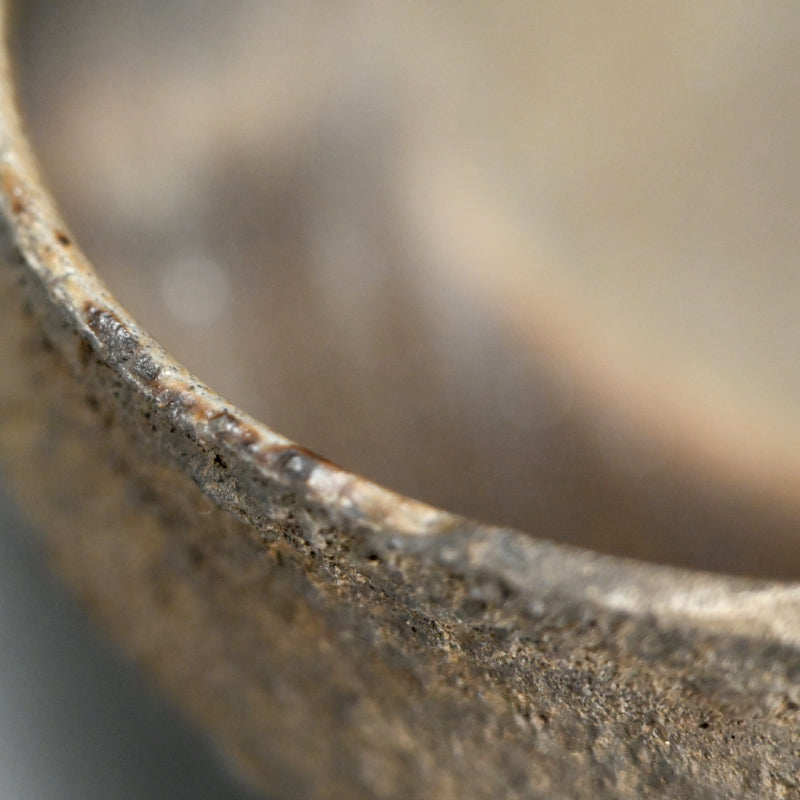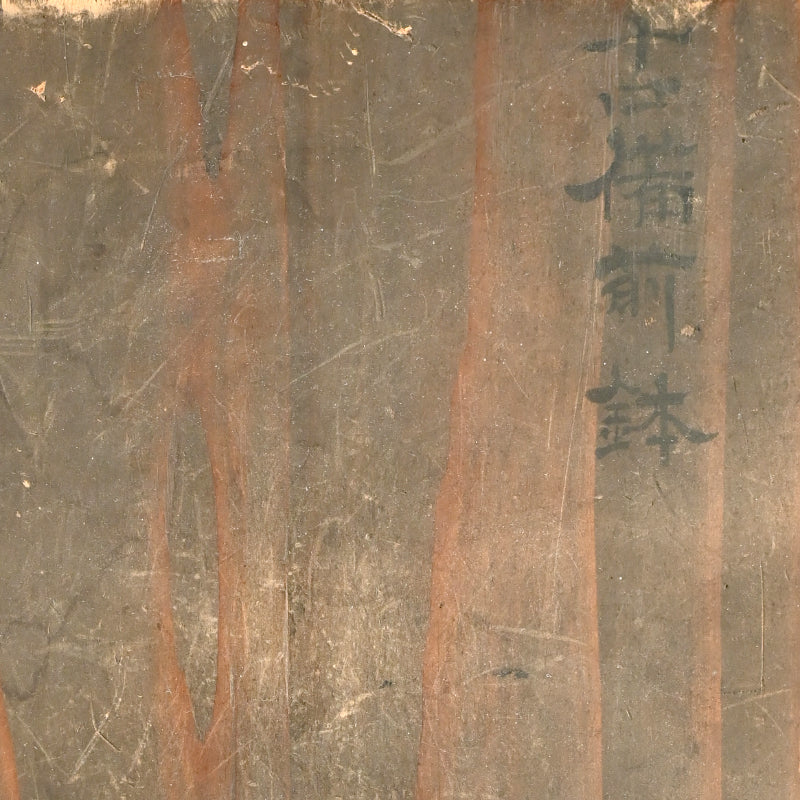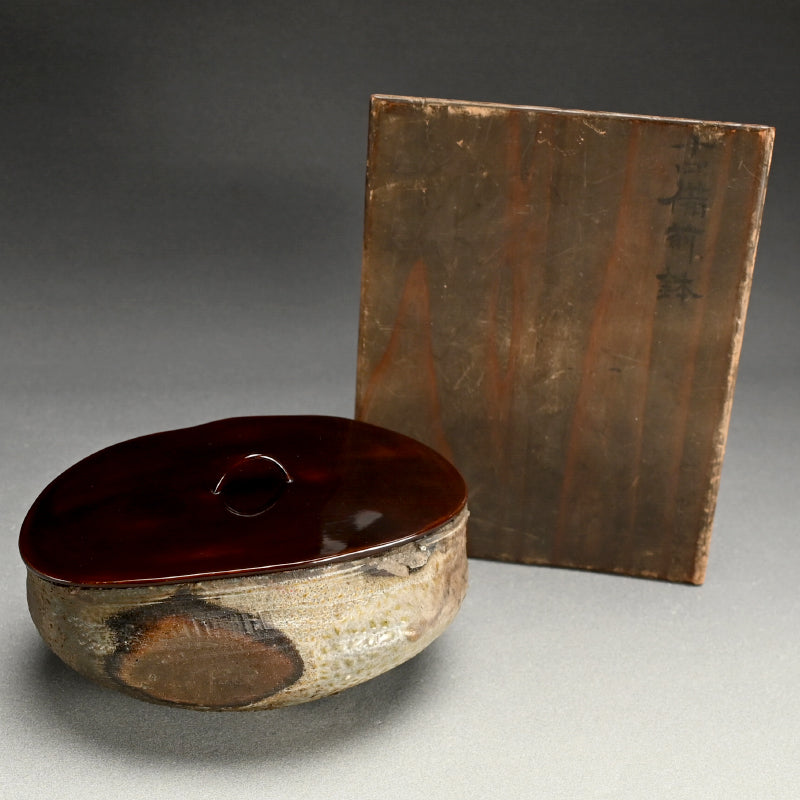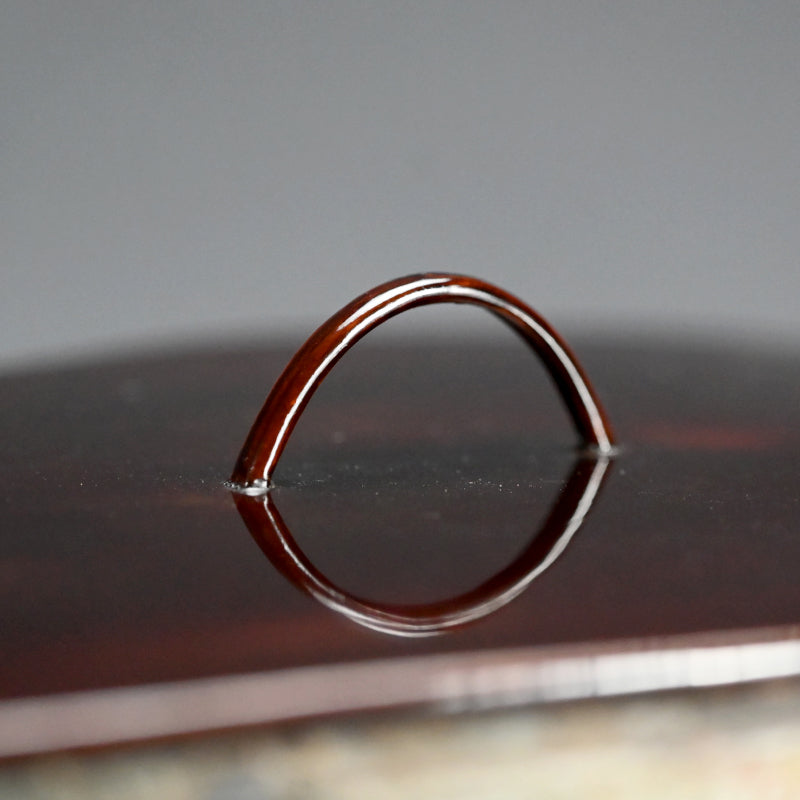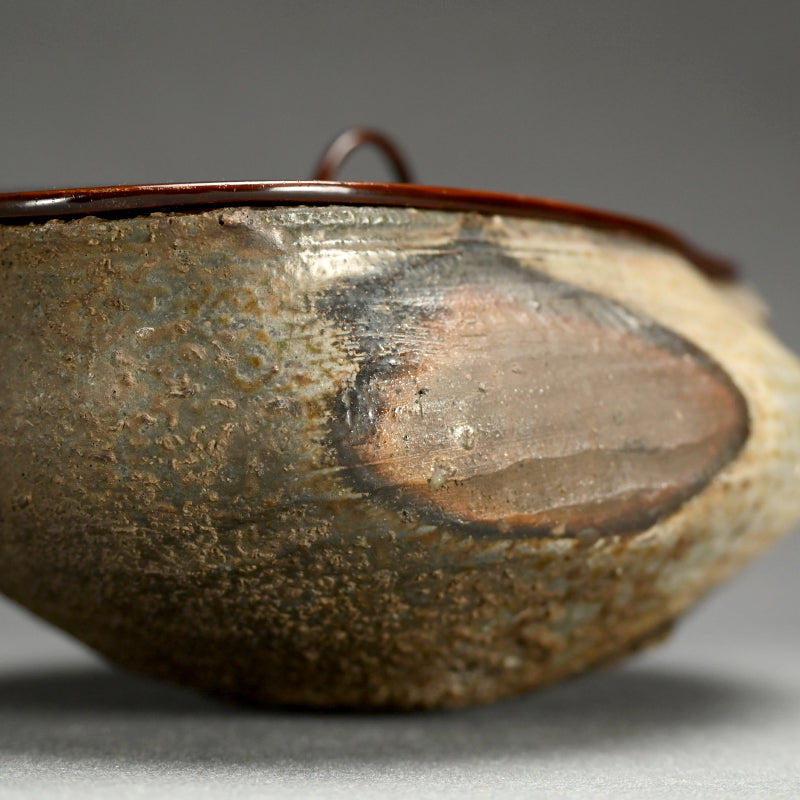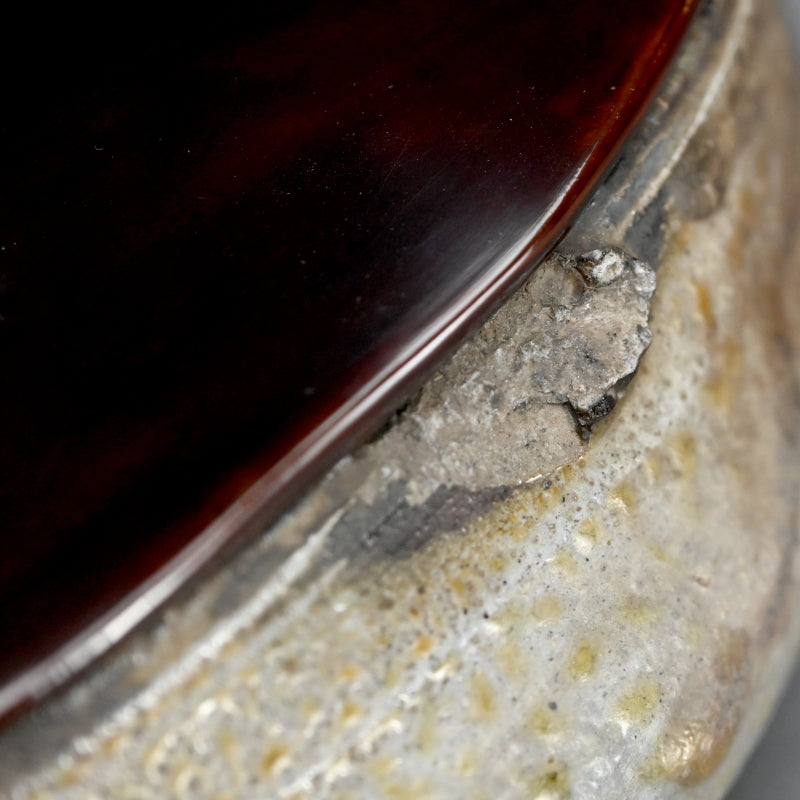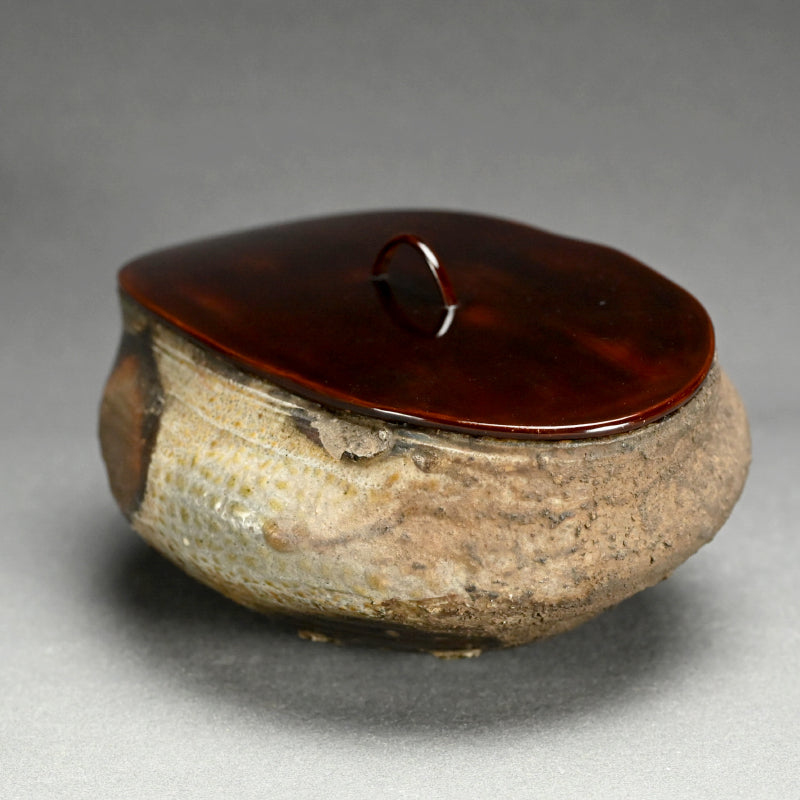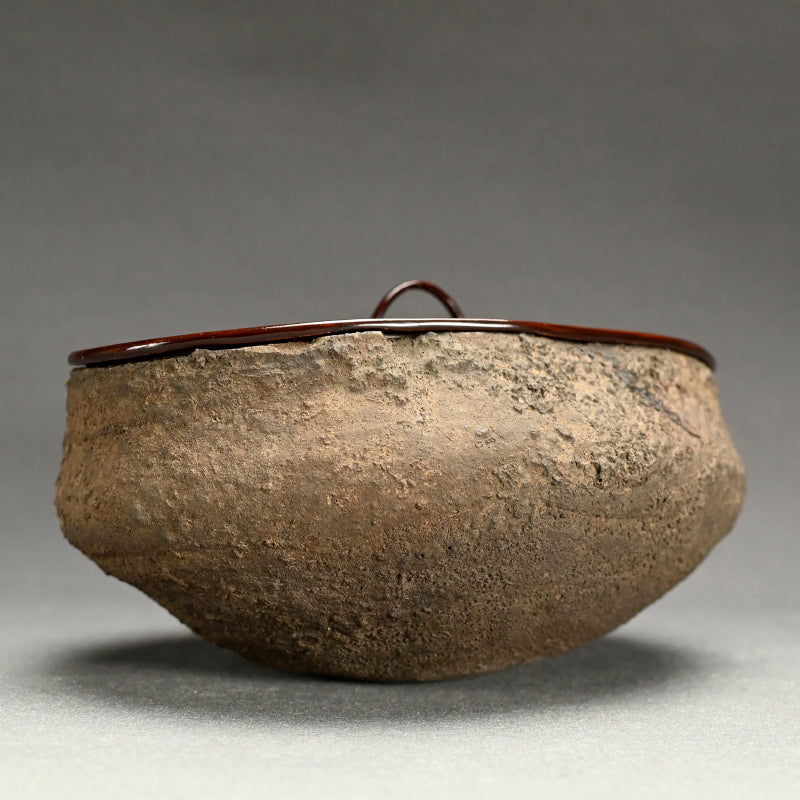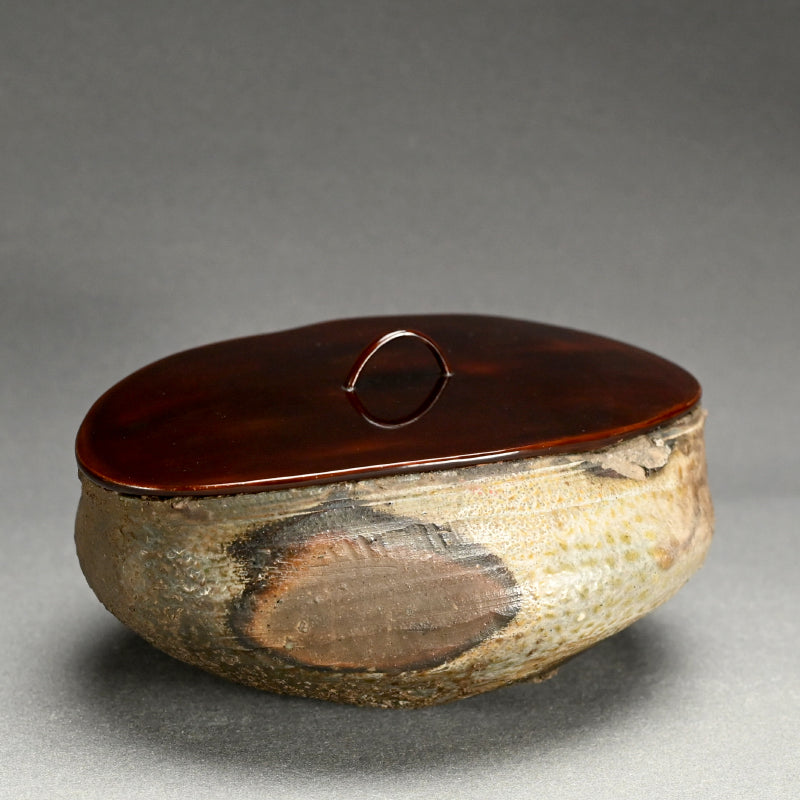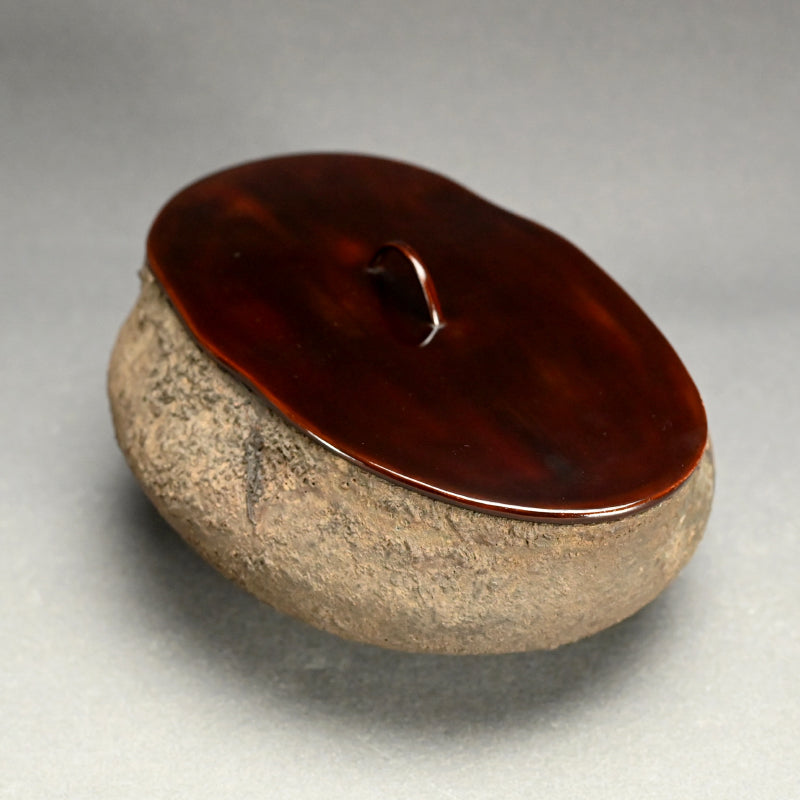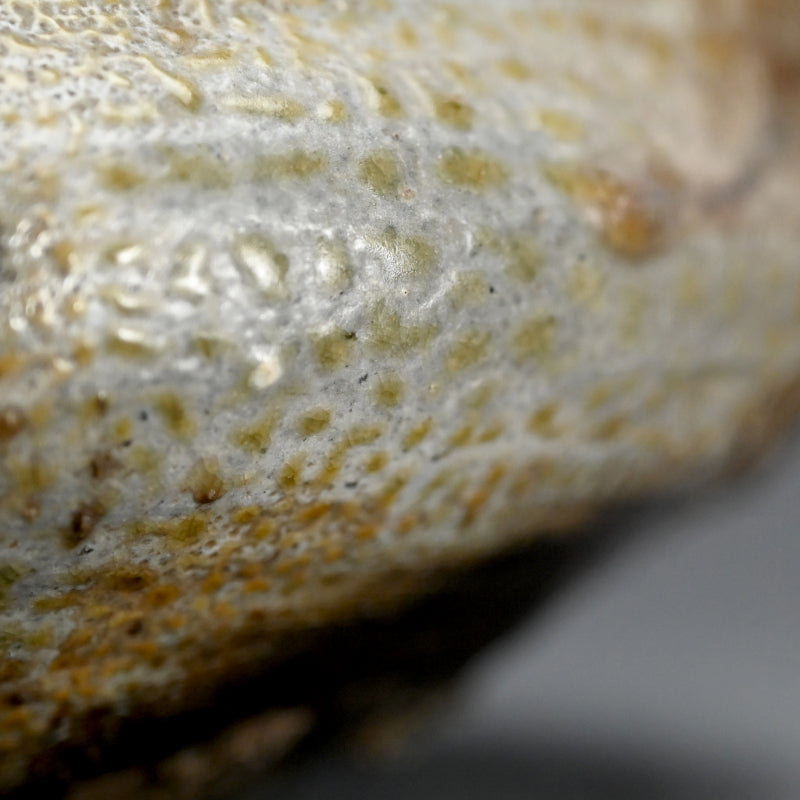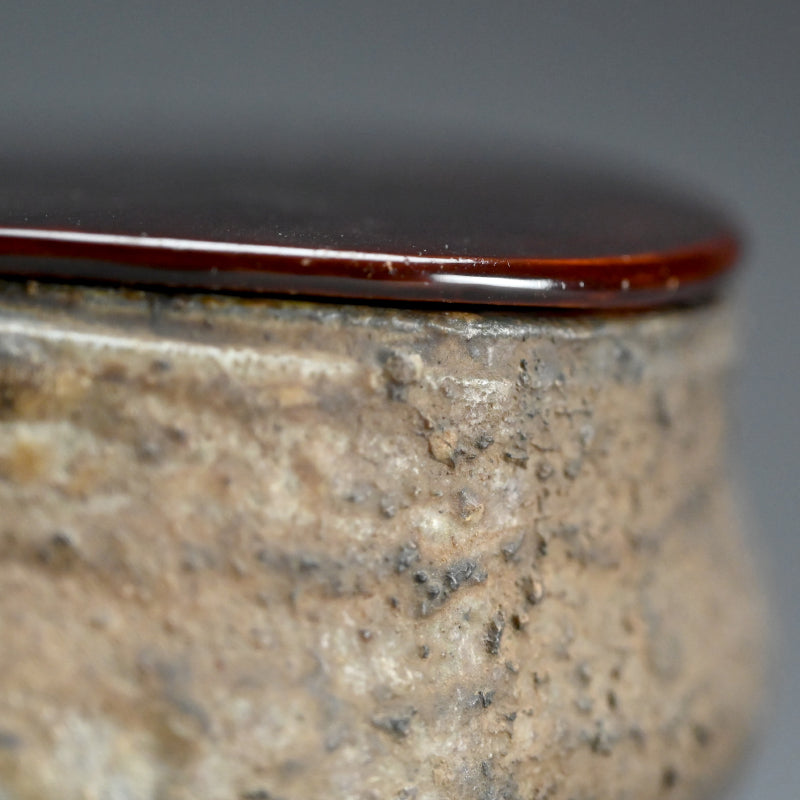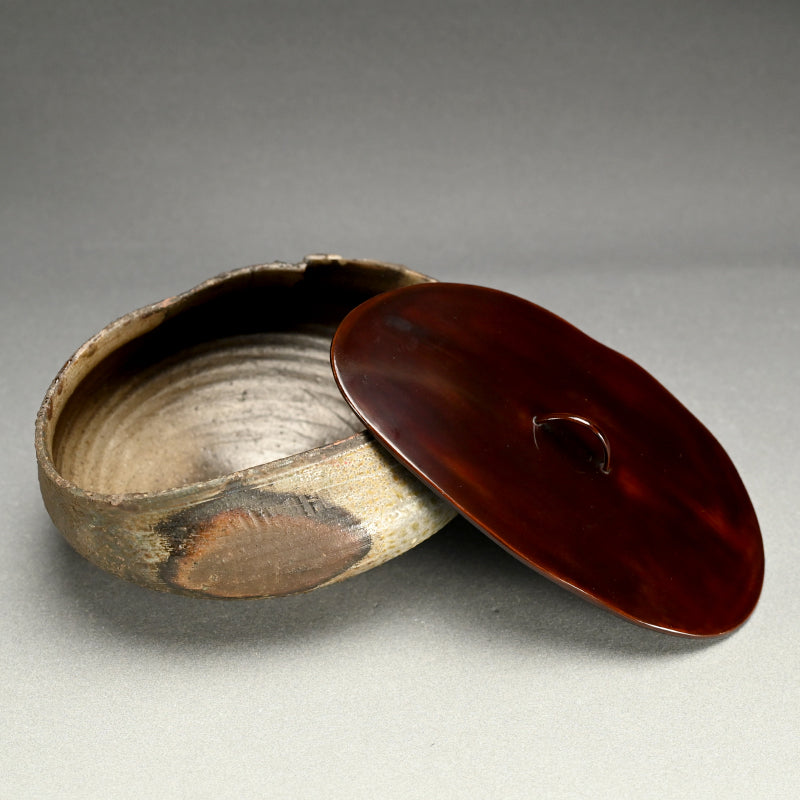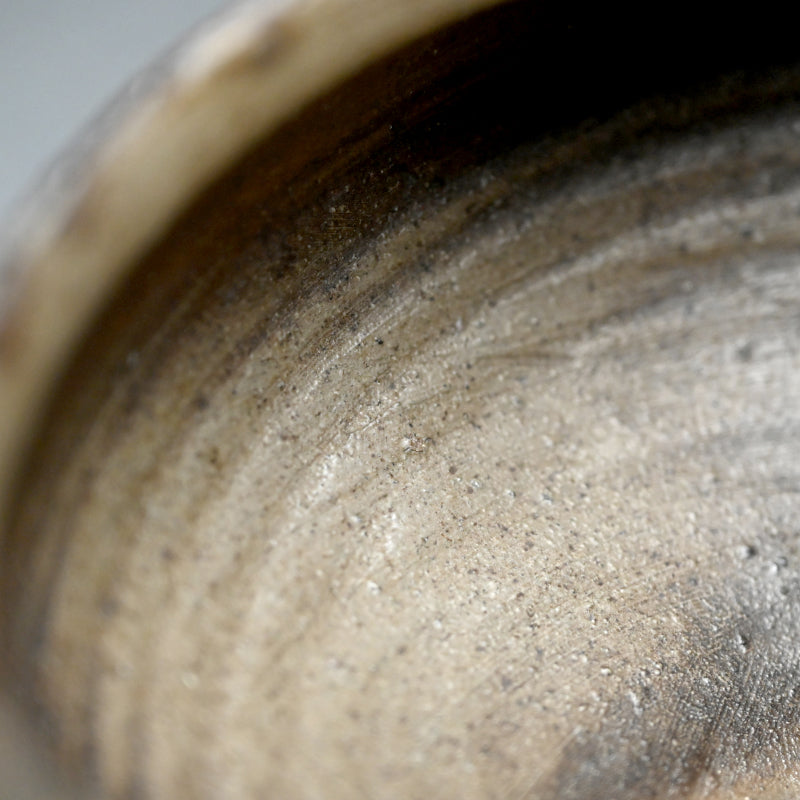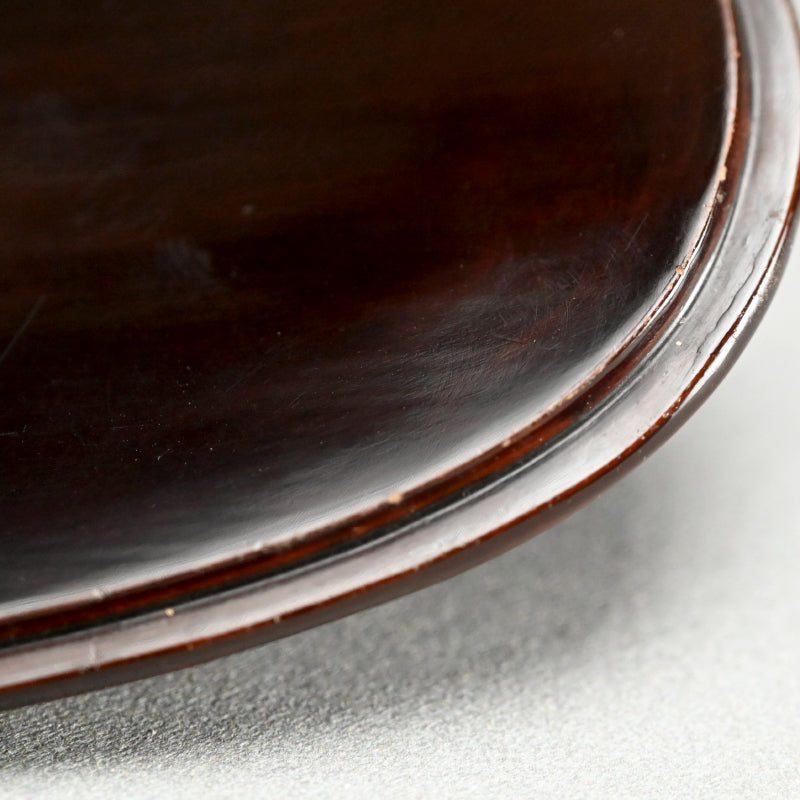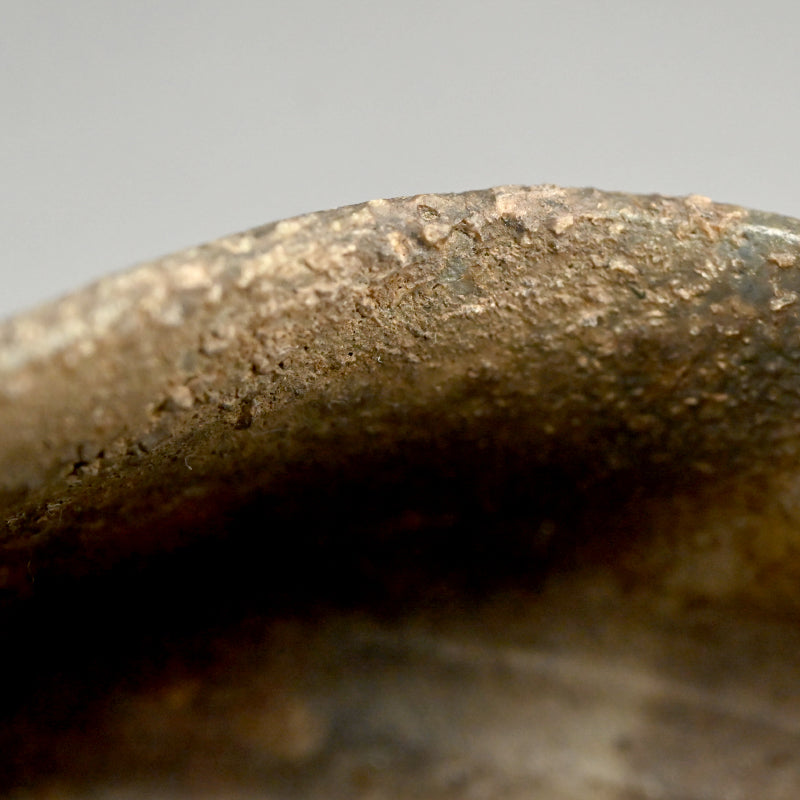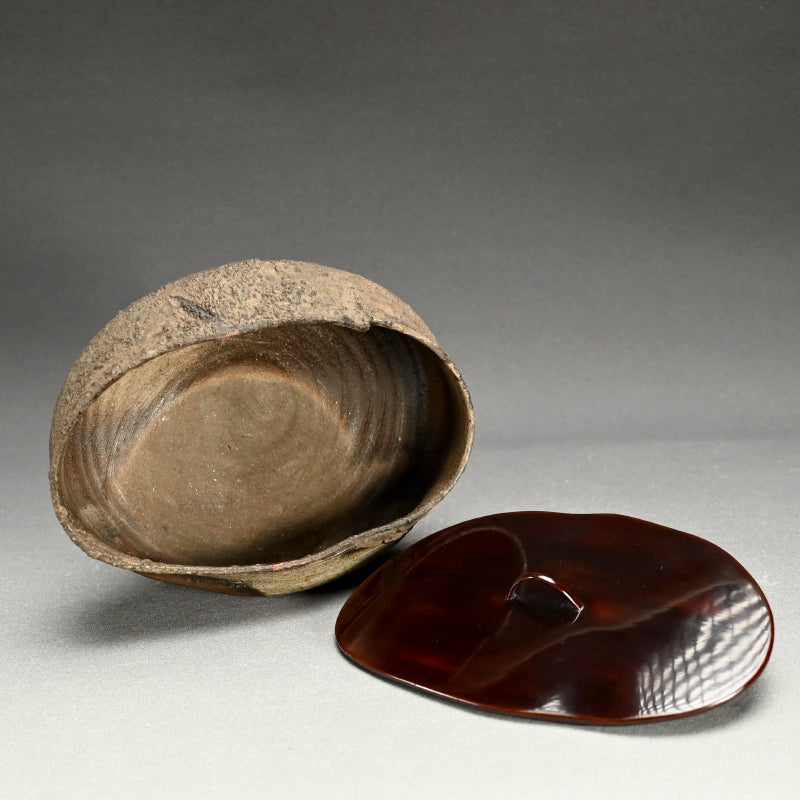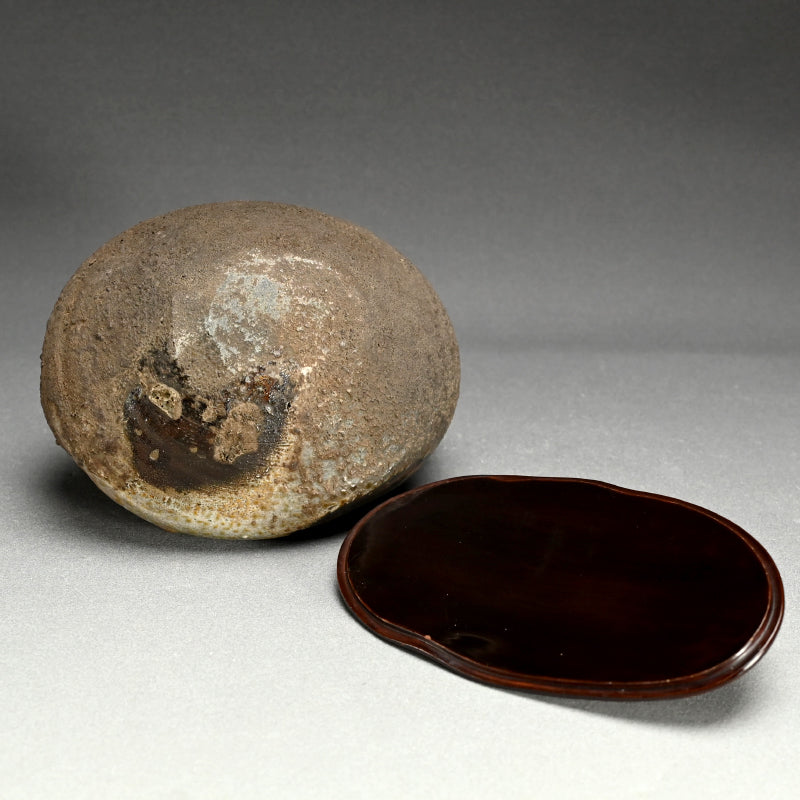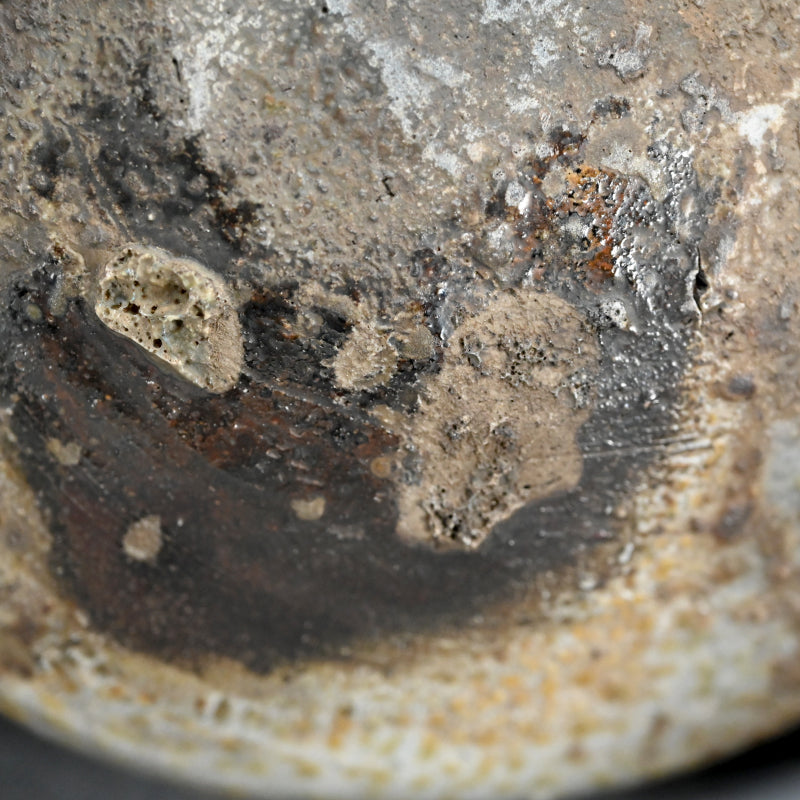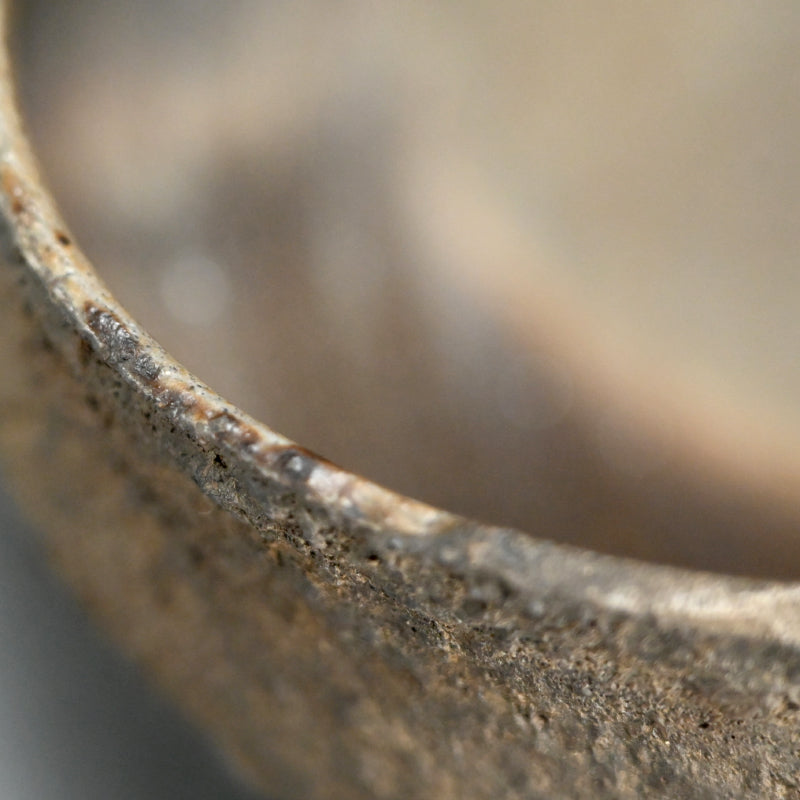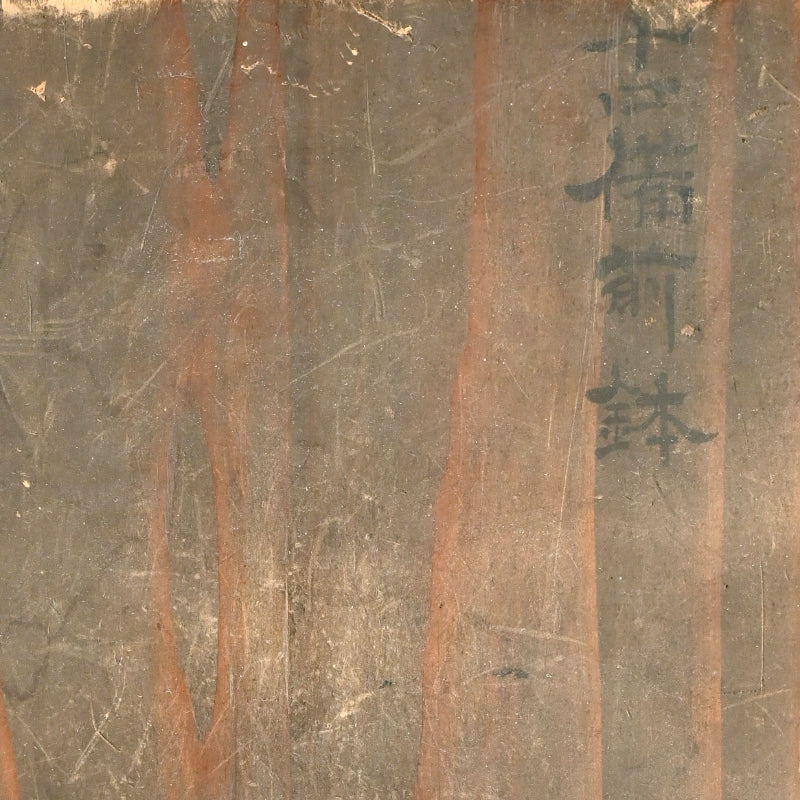Fabulous Ko-Bizen Ceramic Matcha Tea Ceremony Mizusashi
Fabulous Ko-Bizen Ceramic Matcha Tea Ceremony Mizusashi
Item Code: K680
Couldn't load pickup availability
A truly spectacular Bizen bowl misshapen and heavily dusted in ash likely from a kiln accident repurposed with reverence as a Mizuashi fresh water container for use in the Japanese Maccha Tea Ceremony with a custom carved lacquered lid tarnished and faded from black to mellow brown with age enclosed in an age blackened wooden box titled Ko Bizen Hachi. It is 21.5 x 18.5 x 12 cm (8-1/2 x 7-1/2 x 5 inches) and is in excellent condition.
The use of damaged or repurposed items in the Japanese matcha tea ceremony (chanoyu) reflects the profound aesthetic and philosophical principles of wabi-sabi, which values imperfection, impermanence, and the beauty of natural wear and age. Wabi-sabi originates from Zen Buddhism and emphasizes simplicity, humility, and acceptance of transience. In chanoyu, this philosophy is expressed through the use of objects that show signs of wear, repair, or age. It is a celebration of imperfection, Items with cracks, chips, or asymmetry embody the imperfection inherent in nature and life. This imperfection is not seen as a flaw but as a unique story carried by the object. In chanoyu, objects such as old roof tiles, bamboo remnants, or wooden fragments are often repurposed as utensils or decorations, reflecting the resourcefulness and mindfulness of the practitioner. Implements made from simple, everyday materials, such as an old basket repurposed as a flower vase or a rustic wooden ladle, align with the aesthetic of finding beauty in the mundane. Imperfect or aged items create an atmosphere of peace and contemplation, encouraging participants to focus on the moment. Each piece, especially if damaged and repaired, becomes unique, embodying the artisan’s or user’s story. The natural materials and their gradual transformation over time echo the seasonal and transient themes central to tea ceremony aesthetics. By using damaged or repurposed items, the host conveys humility and a respect for history and tradition. The practice teaches guests to value the essence of things over their outward perfection, encouraging mindfulness and gratitude and embodies the Japanese reverence for transience, turning objects that might be discarded in other contexts into cherished treasures. This practice serves as a poignant reminder to appreciate life's imperfections and to find beauty in the unexpected.
Share
